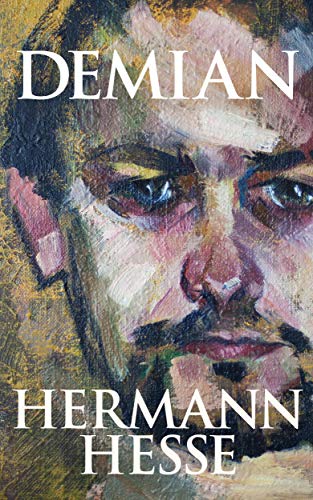
A crack of temptations in the perfect world of innocence invites the journey of self-knowledge and knowing adulthood of Emil Sinclair. The intricate plot of the German masterpiece Demian, published in 1919, revolves around Sinclair’s coming-of-age story.
The short read immediately captures its readers’ attention, and on the very first page, it lets the reader in on everything they need to know. Introducing every thought and question through Sinclair’s narrative, Hermann Hesse seems to peek into the mind of his readers. As if all of Sinclair’s struggles were written with the readers in mind, one is bound to sit back and dwell in the profound retreat of Sinclair’s world. A world that is so alike the readers, yet so whimsical.
Here’s a deeper glance at the work of genius, the brain behind the story, what to expect from the read, and why it is perfect for seekers, philosophers, and wonderers alike.
THE WORK OF GENIUS
As if Hesse wasn’t writing at all, but conversing with his readers, the novel opens with a ten-year-old Emil Sinclair. From his childhood, Sinclair is keenly aware of Scheinwelt – a wordplay, which means both “World of Light” and “World of Illusions”. His very name is the amalgamation of the two forces his world is divided into – the world of evil (Sin) and the world of light (Clair). It comes as no surprise when the young boy takes the readers on a journey of search for himself. From his innocent boyhood to his knowing adulthood.
It is from the young age of ten, that Sinclair feels the tug of inner conflict between the “world of light” – the sanctity of the world within the walls of his home – and the “forbidden realms” – the outside world filled with sin, deceit, loneliness.
With his first brush of evil, trapped in the lies of his own words, Sinclair’s torments end at the hands of the new addition to the town, aloof but charismatic rescuer Max Demian. Finding himself hating Demian in equal measure as being fascinated by him, Sinclair is hooked. Their deepening friendship leaves Demian sometimes in the role of a mentor and sometimes a tempter.
Along the tortuous path to knowing adulthood, Sinclair experiences everything from temptations to resistance, guilt to moral completeness, utter despair to spiritual ecstasy. His personality is shaped by the mentorship and friendship of characters as vivid and fascinating as himself. Some leading him down the path of corruption others making him aim for his holiest ideals. Regardless, it is the union of every lesson, every impression of every mentor that leads Sinclair to the ultimate conclusion of self-exploration. Only to be thrown into a catastrophic war (World War I), from where rising unscathed is unlikely.
AUTHOR AND HIS INSPIRATION
Published under the pseudonym Emil Sinclair is no coincidence at all. It is widely believed the name was an inspiration drawn from Isaac von Sinclair, by the author Hermann Hesse. Sinclair was a German poet and philosopher, popular for his writings on love and pain, around the globe. Not surprisingly, the same themes appear throughout Demian in various forms.
But it was more than Isaac von Sinclair that inspired Hesse to pen down the work of genius. The story was published right after the end of World War I, inspired by Hesse’s pursuit for the meaning of life when everything around him was topsy-turvy.
His interest in psychologist Carl Gustav Jung’s psychoanalysis is just as apparent in the story as are the horrors of war. Suffering great mental anguish after his rejection from Germany, his father’s death, and the ailment of his beloved wife and son, Hesse turned to the aid of Jung. With over seventy sessions with Jung’s associate J. B. Lang, Hesse took on a journey of re-examining his whole value system as well as understanding the human mind in a new light.
Within two months, he produced Demian, a work so remarkable and radical, he went on to receive Fontane Prize for new authors under Sinclair’s name. But when his true identity was revealed, even Hesse’s friend, the renowned Thomas Mann could not believe Demian to be Hesse’s work!
Regardless, it remained as one of the most influential works of Hermann Hesse, an author who was blacklisted under the Nazi regime. An author with more than two dozen publications under his name. The recipient of the Nobel Prize in Literature and the Peace Prize of the German Book Trade.
CONTENT AND THEME
Beyond his conventional upbringing, what is expected out of him, Emil Sinclair is drawn into the forbidden world of endless possibilities, loneliness, and selfhood. An average boy treading through the rough waters of boyhood, teenage, and adulthood.
Readers ought to feel the string of their hearts tug at Sinclair’s inner thoughts, as Hesse explores the wonderful workings of the human mind. Particularly through Sinclair’s intellectual development, his torment between choosing between temptations and resistance, and exploring the forbidden topics, like influencing how other people act to name the lesser tempters.
Demian also centres around Neitzschean ideas like Good and Evil, the conformists’ ideas on the notion and if they are what it seems if there good and evil are but the two sides of the same coin. The Neitzschean idea of will is explored in just as much depth as the Hindu concept of Maya.
Revolutionary, brutal, unique, and unmistakably one of the greatest novels stands against the test of times as relevant today as it was over a hundred years ago when it was first published.
RECOMMENDATION
The entrancing read is not a few words woven in sentences but an experience of its own. The enigmatic journey of Sinclair hits home with questions and experiences readers ought to have faced at least once in their lives. His troubles with temptations feel too real and are often regarded as too personal as if Hesse plucked them right out of his reader’s mind.
Anyone with a flair for introspective reflection and absorbing varied viewpoints would enjoy the masterpiece in modern literature. Even if one is looking for an interesting read, Demian is a breath of fresh air. Though it has strenuous vocabulary, a quick sweep through a dictionary never hurts anyone.
Author Bio: Disha Walia is a writer, editor for those who have trouble putting thoughts into words, and a lifelong storyteller. As a Psychology graduate with a Master’s degree in English, she loves exploring the unknown world of words with an interdisciplinary approach. She has a love for hobbies that focus on finer details, creativity, and intriguing depths.


